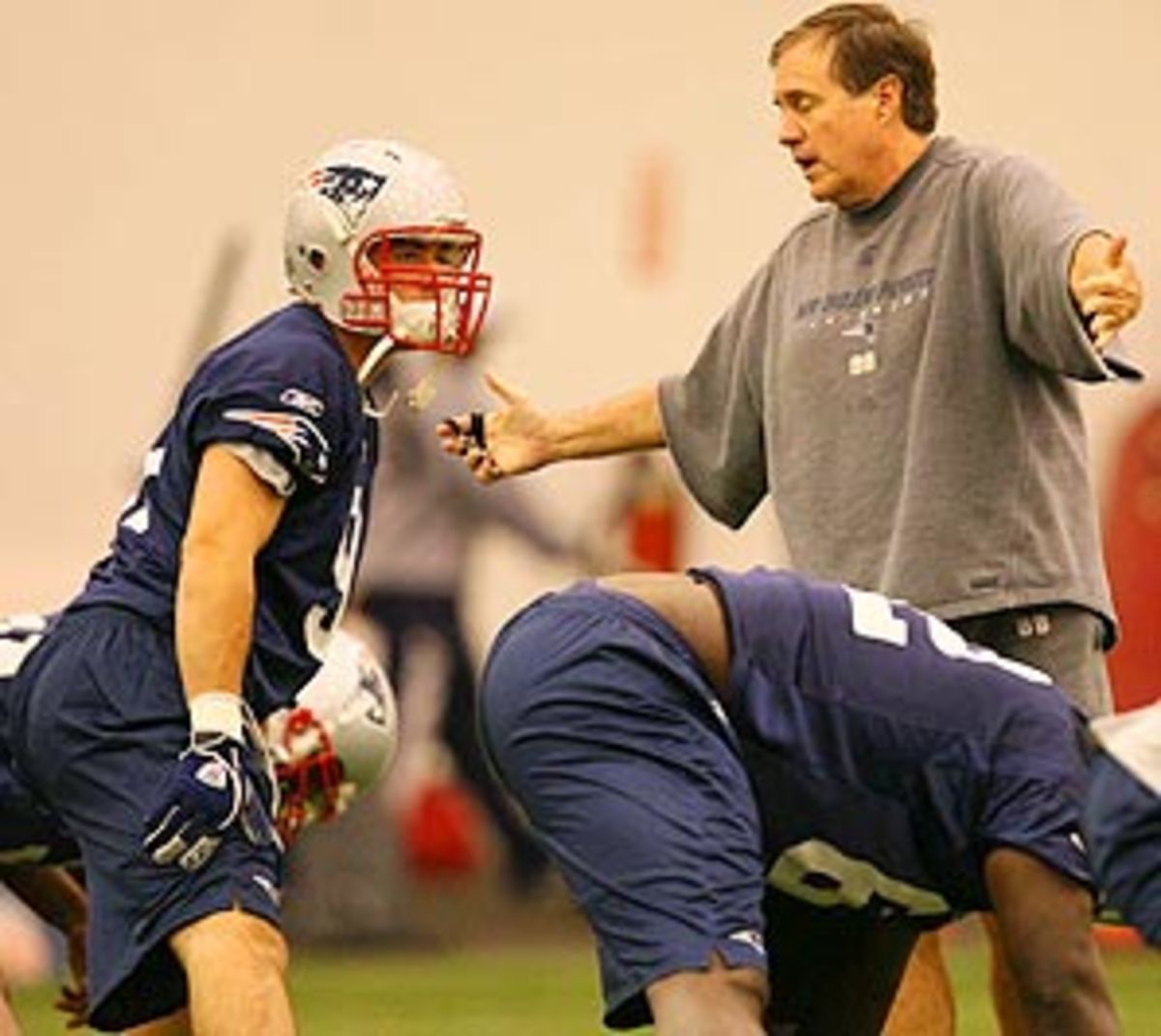Cheaters never win: The risk of breaking rules not worth reward
Walsh's comments to commissioner Roger Goodell earlier this week that New England had players on injured reserve participate in practice wasn't news to me. I had heard the Patriots did this before I signed with them in 2005 and I saw it firsthand during my time there. I asked veteran receiver Troy Brown about it one time and he responded, "Every team in the league does that." I quickly let him know none of the three teams I played for previously had done so.
Basically, the Patriots would put a player on IR, knowing it meant he couldn't play in a game or practice with the team for the remainder of the season. By skirting the rules and practicing him anyway, it allowed them to develop his skills during the year. A side benefit is that they were also able to give some of the older players less repetitions and, therefore, additional rest.
Bending rules is a fact of life in the NFL. From ballboys allowing the opposing team's footballs to get soaked, to hotel employees scouring rooms for game plan sheets after a team heads to the stadium, there are several ways to get in on the act. Seemingly no organization, no matter how accomplished or destitute it may be, is immune from the win-at-all-costs mentality. Some teams cheat and never get caught. Others simply refrain from breaking the rules but bend them right to the breaking point.
I remember a game earlier in my career during which I was assigned to stand on the sidelines and watch Dallas Cowboys defensive coordinator Mike Zimmer on every play, dutifully looking for the specific signal I had been told to watch for. Once I identified that Zimmer had in fact called for the blitz, I alerted a member of the coaching staff, who waved a red flag to the offensive linemen on the field, making sure they were aware that the designated blitz was coming. I distinctly remember times when I wasn't sure whether Zimmer had signaled the blitz, and deciding I wouldn't say anything to our staff unless I was completely confident. It wouldn't have been good, of course, for my fellow linemen to be looking for and anticipating a blitz that never came. The thing is, although I think it helped my team's cause to some extent -- we picked up that stunt on a couple of occasions -- we still lost the game.
To this day I do not know how our coaches knew that Zimmer's gesture indicated a strongside dog by the Sam and Mike linebackers. My guess is that the signal had been decoded by an advance scout who had attended a prior game, or perhaps another member of the coaching staff had previously worked with the other team's defensive coordinator.
One season when I was with the Bills, the offensive line coach for the team we were were about to face was fired days before the game. He subsequently called our offensive line coach, Jim McNally, and let him know some of the unique defensive formations we could expect to see that week. Needless to say, the defenders were very surprised how well prepared we were.
The point is that situations like these arise in every NFL city over time and teams constantly walk the slippery slope between bending and breaking the rules.
Naturally, in the wake of the Spygate mess, I've been asked if I recall any instances in which it appeared that my coaches in New England had inside information gleaned from taping an opponent's defensive signals in the first half of a game.
Absolutely not. I had no knowledge of the filming while I was there and my sense is that none of the other players did either. These tapes were never mentioned or alluded to in any way.
The Patriots, however, clearly felt they derived some benefit from the filming, otherwise they wouldn't have been doing it. I believe it was simply one more example of Bill Belichick's quest to compile as much information as possible. He's a smart man and big believer in the philosophy that knowledge is power.
I cannot and do not condone the activities they have taken part in that are clearly against the rules. Belichick and Scott Pioli, vice president of player personnel, are two of the smartest men in the business and their thought process, or lack thereof, perplexes me. Everything in economics and business is an evaluation of risk and reward. What doesn't add up is that the reward being gained by the Patriots seems so small compared to the risk of getting caught and potentially having all of their accomplishments called into question.
That is perhaps the saddest aspect of the entire affair, the fact that because of some unnecessary rules violations, people will call into question the wonderful accomplishments of many players who laid it on the line week in and week out over a number of years. Though I don't think it tarnishes the Patriots legacy, it does create a certain level of doubt. And isn't that doubt the real problem here?
That doubt is the very reason why the Patriots and all NFL teams can ill afford to break the rules going forward. The games, players and championships are too special for there to be any misgivings or skepticism about the manner in which they have been conducted.
I realize and expect people in the NFL will always look for an edge and attempt to bend the rules to achieve success. The hope is more teams and individuals will toe the line without completely stepping over it and breaking the rules.





